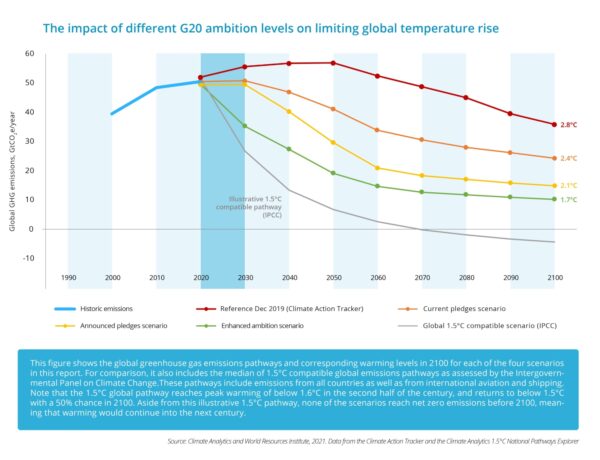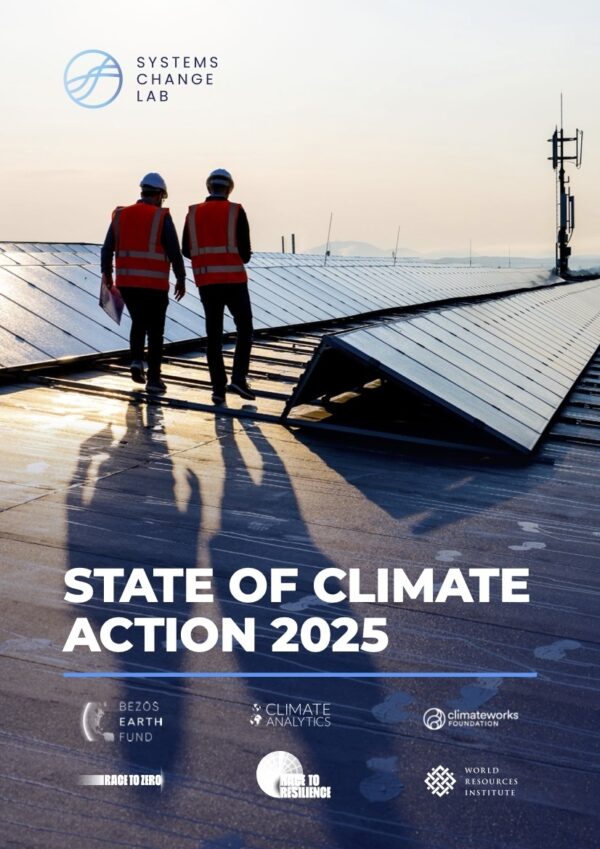Closing the gap: the impact of G20 climate commitments on limiting temperature rise to 1.5°C
Authors
Claire Fyson, Andreas Geiges, Matthew Gidden, Jamal Srouji and Clea Schumer
Share

This paper presents a set of scenarios that simulate different mitigation commitments made by G20 countries for 2030 and mid-century and the resulting impacts on global temperature rise.
Highlights
- The G20—a group collectively accounting for around 75 percent of global greenhouse gas (GHG) emissions, 80 percent of global GDP, and two-thirds of global population—has an outsized role to play in addressing climate change.
- Current submitted nationally determined contributions (NDCs), together with legally binding net zero commitments, put the world on a trajectory to 2.4°C of warming by the end of the century.
- Additional 2030 and net zero pledges that have been announced by the G20 countries but not yet formalised in the NDCs or binding net zero targets could lower projected temperature rise in 2100 to 2.1°C, if fully implemented.
- This is an important step in the right direction but still far from sufficient to meet the Paris Agreement’s 1.5°C temperature goal. Moreover, the announced net zero pledges would in most cases require very steep emissions reductions from pledged 2030 levels, which is out of step with feasible pathways identified by global modeling efforts. Ambitious action to rapidly cut emissions in the 2020s is urgently needed to improve the robustness of the pathway to net zero.
- If all G20 members were to adopt mid-century net zero commitments and align their NDCs with a 1.5°C pathway, end-of-century global warming could be limited to 1.7°C.

- With this 0.7°C drop, down from 2.4°C under current commitments, G20 countries could collectively close three-quarters of the temperature gap to 1.5°C, keeping it within reach.
- Those G20 members that have not yet strengthened their NDCs or committed to achieving net zero emissions should do so urgently.
- To ultimately achieve the 1.5°C goal, ambitious action from non-G20 countries is needed too, as well as efforts to curb emissions from international aviation and shipping.
- Achieving ambitious targets will require developed countries to substantially ramp up financial support to developing countries to help reduce emissions and build resilience against climate impacts. G20 developed countries have a particular responsibility to step up their public finance and mobilize private finance for international climate action, to close the gap to the commitment of $100 billion per year and go beyond.











